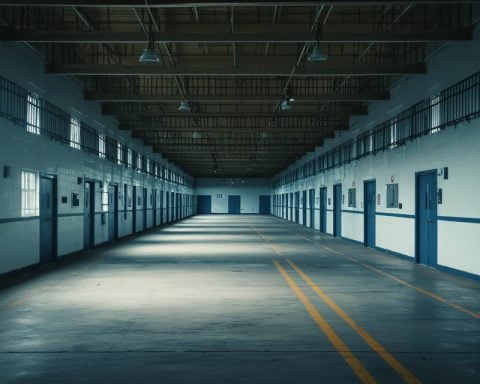- Aleppo residents are increasingly turning to satellite internet as a solution to poor landline and cellular connections.
- Satellites like Starlink offer high-speed internet but face legal challenges, putting potential users at risk of repercussions.
- Installation costs for satellite services in Aleppo range significantly, reflecting a fragmented market.
- Internet speed options can reach up to 200 Mbps, accommodating the needs of multiple devices simultaneously.
- The outdated telecommunications infrastructure in Syria is being recognized by officials, highlighting an urgent need for improvement.
- The future of internet access in Aleppo depends on regulatory developments and the evolution of available services.
In the war-torn city of Aleppo, residents are facing a digital dilemma: sluggish landline connections and unreliable cellular networks are pushing them to seek alternatives. Following the fall of the Syrian regime, a growing number of users are eyeing satellite internet as their salvation.
Once available in parts of Aleppo under opposition control, satellite services have recently returned to the spotlight. Yet, acquiring these devices remains a legal gray area. The head of the Communications and Postal Regulatory Authority issued a warning that owning Starlink devices could result in legal repercussions, raising fears among potential users.
Despite the legal hurdles, many are determined to secure fast internet. Ahmad, an internet service center owner, offers Starlink installations for $1,000 plus a monthly fee of $100, and promises speeds of up to 200 Mbps. His offer allows multiple devices to connect simultaneously, catering to the high demands of modern users.
Prices vary widely depending on the source, with some vendors charging $1,350 for installation and activation, while others quote lower device prices without installation. This price variability reflects the deeply fragmented market in Aleppo.
Amidst these challenges, the Minister of Communications has acknowledged the dire state of Syrian telecommunications, citing outdated infrastructure that fails to meet citizens’ needs. The future of internet access in Syria hinges on regulations and the potential for improved services, but for now, Aleppo residents are fighting for their digital lifelines.
The key takeaway? As Aleppo seeks to bridge the connectivity gap, innovation and regulation will shape the way forward.
The Digital Lifeline: Aleppo’s Quest for Reliable Internet in a Post-War Era
The Current Internet Landscape in Aleppo
Residents of Aleppo are desperate for reliable internet connectivity as traditional landlines and cellular options falter. In this context, satellite internet is not just a novelty; it has become a potential solution for many. The slow and unreliable internet options have led to a significant interest in modern satellite services, particularly Starlink, which promises high speeds and reliability.
Features and Limitations of Satellite Internet in Aleppo
Features:
1. High Speeds: Starlink offers speeds up to 200 Mbps, which supports multiple devices, making it suitable for homes and small businesses.
2. Global Coverage: Unlike terrestrial internet options, satellite technology provides coverage even in remote and rural areas, expanding accessibility.
3. Easy Setup: The Starlink system can typically be set up without professional help, allowing users to take control of their internet service.
Limitations:
1. Legal Issues: The use of satellite devices like Starlink is surrounded by legal uncertainties, deterring many from installation.
2. Cost: Installation prices can be steep, with upfront costs around $1,000 and monthly fees up to $100, making it a significant financial investment for residents.
3. Latency Issues: While speeds may be high, satellite internet can suffer from latency, impacting online activities such as gaming or video calls.
Market Trends and Innovations
The telecommunications market in Syria, particularly in Aleppo, is witnessing an influx of innovative technologies as users seek alternatives to traditional services. The Ministry of Communications has expressed a need for modernization of the outdated infrastructure. However, market fragmentation and varying prices for satellite installations complicate matters.
Pricing Insights
The reported prices for Starlink setup in Aleppo vary widely, from $1,000 to $1,350, depending on the provider. This discrepancy underscores the fragmented nature of the market, where various vendors offer different packages and services.
Key Questions about Satellite Internet in Aleppo
– What are the legal ramifications of using Starlink in Aleppo?
– The head of the Communications and Postal Regulatory Authority has warned that owning Starlink devices may lead to severe penalties. This creates a chilling effect on potential users who may fear legal repercussions despite the need for improved connectivity.
– How can residents afford the high costs of satellite internet?
– Many are leveraging communal networks, pooling resources, or seeking financing options to mitigate the burden of installation and subscription fees. The desire for reliable internet service pushes some to make substantial sacrifices.
– What does the future hold for internet access in Aleppo?
– The future depends heavily on regulatory changes. Improved telecommunications infrastructure and legal clarity regarding satellite services could open new avenues for connectivity, effectively transforming the digital landscape of Aleppo.
Related Links
For more information, visit Starlink for details on satellite services and their coverage options.


















